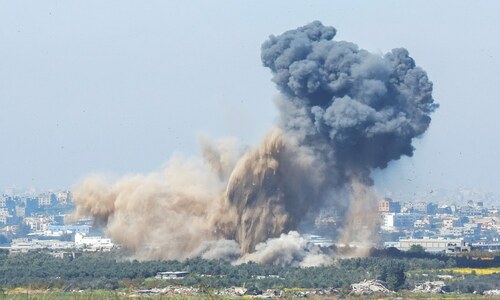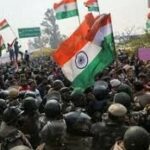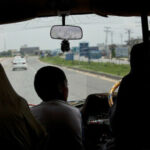Washington: Due to resistance in Congress, US officials are getting ready to temporarily stop paying the primary UN organization for Palestinians, despite the Biden administration’s insistence that the assistance group’s humanitarian efforts are vital.
In January, the United States and over a dozen other nations ceased providing funds to UNRWA, the United Nations Relief and Works Agency for Palestine Refugees in the Near East, following accusations by Israel that 12 out of the office’s 13,000 employees in Gaza were involved in the attack on October 7.
Following information about the allegations from Israel, UNRWA terminated certain employees, and the UN opened an investigation into the claims.
The US, which contributes $300 million to $400 million a year, is UNRWA’s largest donor. It stated that before considering resuming financing, it wants to see the findings of that investigation and corrective action done.
The main donor to UNRWA is Washington, which contributes $300–400 million a year.
Not even if the delay is lifted will UNRWA receive more than $300,000 of the already approved monies. Congress would have to approve anything more.
Even while governments like Sweden and Canada have stated they will resume their contributions, bipartisan resistance in Congress to US support for UNRWA makes it doubtful that the US will resume regular donations anytime soon.
A clause in a US Congress supplemental budget measure that includes military assistance to Israel and Ukraine would prevent UNRWA from receiving financing should it become law. The government of President Joe Biden is in favor of the bill.
According to US officials, UNRWA plays “a critical role” in distributing aid inside the enclave, which is densely populated and on the verge of starvation due to Israel’s attacks over the previous five months.
State Department spokesman Matthew Miller told reporters, “We have to prepare for the possibility that Congress may extend that pause permanently.”
In order to continue providing help, Washington has been considering collaborating with local humanitarian partners like Unicef and the World Food Programme (WFP). Officials understand, however, that UNRWA is difficult to replace.
“There are other organizations that are currently distributing aid inside Gaza, but UNRWA is primarily suited to play that role that no one else is because of their long-standing work, distribution networks, and history inside Gaza,” Miller stated.
“UNRWA is a facade.”
Some progressive members of the US House of Representatives and a few Democratic senators, such as Chris Van Hollen, have opposed an ongoing funding freeze for UNRWA. However, as they control a majority in the House, at least some Republicans would have to back any additional financing. Numerous people have voiced their objection to UNRWA.
The Republican head of the House Foreign Affairs Subcommittee on Oversight and Accountability, Representative Brian Mast, stated in a statement that UNRWA is a front.
Mast said that the organization was actually directing US tax monies toward terrorism while disguising itself as a humanitarian organization and constructing the necessary infrastructure to support Hamas.
When asked about her thoughts on Mast’s assertions, Juliette Touma, the director of communications for UNRWA, stated that the organization’s “measures that UNRWA has in place with regards to the neutrality of the agency, its staff, and programs” are being evaluated by an independent assessment team headed by former French Foreign Minister Catherine Colonna. “We urge member states, individuals, and entities to provide any information regarding allegations made against UNRWA so that the investigation or ongoing review can take a closer look at them,” stated Touma.
A UN General Assembly decision from 1949, following the war that ensued after Israel’s formation, saw 700,000 Palestinians forced from their homes or flee.
In order to meet the civic and humanitarian needs of 5.9 million descendants of those refugees in the Gaza Strip, West Bank, and large camps in adjacent Arab nations, it directly employs 30,000 Palestinians today.
In addition to distributing humanitarian supplies, UNRWA is in charge of the enclave’s schools, primary healthcare facilities, and other social services. A third of UNRWA’s budget, according to William Deere, head of the organization’s Washington Representative Office, comes from US funding.








